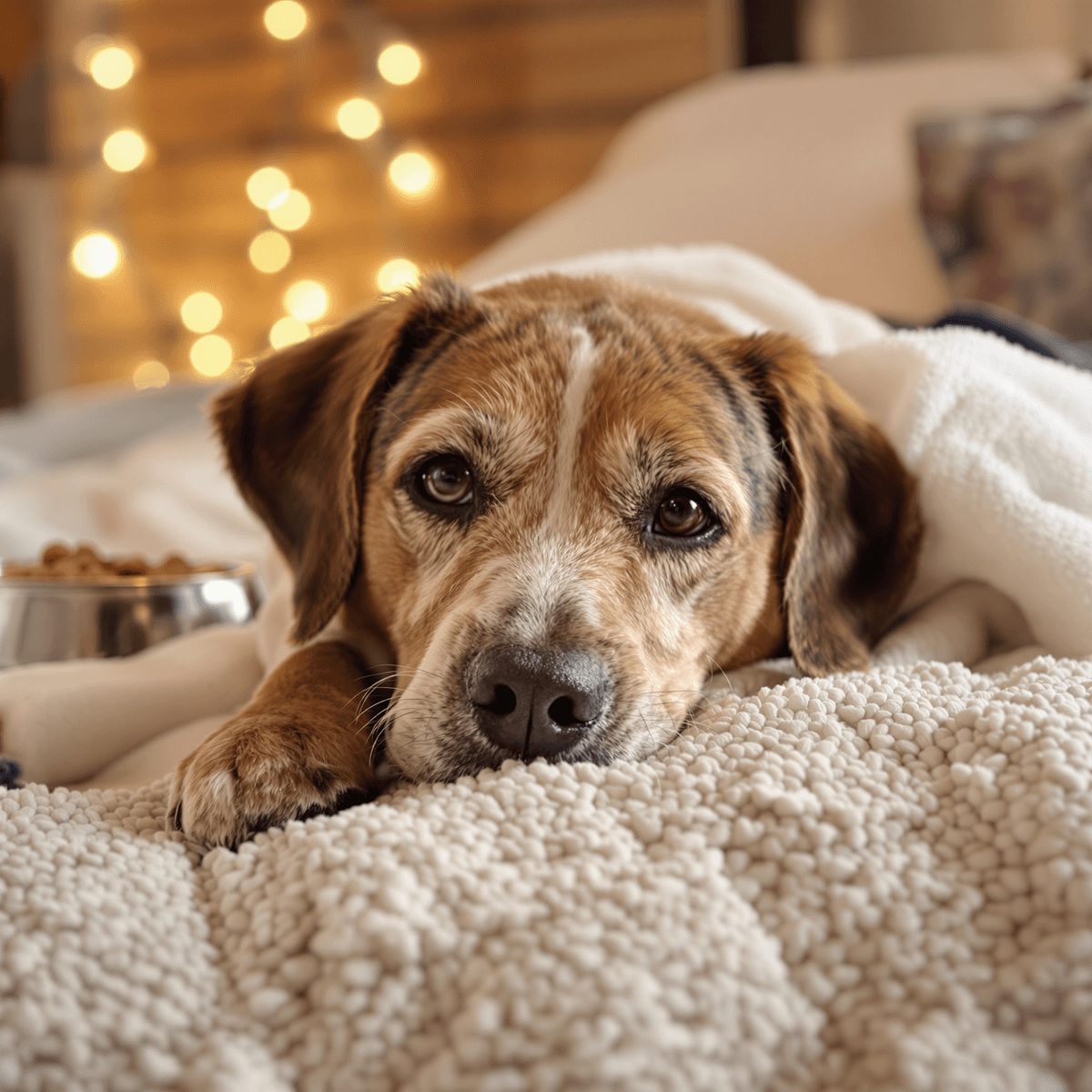- Pre-travel health assessments
- Required vaccination updates
- Travel documentation
- Personalized advice for your dog’s specific needs
- Health and Safety Measures: How to prevent motion sickness and manage anxiety
- Travel Equipment Selection: Choosing the right carriers and restraints
- Emergency Preparedness: Making a detailed plan for travel safety
- Car journeys
- Air travel
- Hotel stays
- Extended vacations
Preparing Your Dog for Travel: Vet-Recommended Health Measures
A pre-travel checkup at your local veterinary clinic in Oshawa, ON is essential for your dog’s safety. Schedule this appointment 2-3 weeks before departure to address potential health concerns and ensure a stress-free journey. Your veterinarian will perform these critical health checks:- Vaccination Updates: Your pet’s vaccines must be current, particularly rabies, which is mandatory for interstate travel
- Health Certificate: A certified document confirming your dog’s fitness to travel
- Parasite Prevention: Protection against fleas, ticks, and heartworms for your destination
- Medical Assessment: Evaluation of existing conditions that might affect travel
- Anti-anxiety medications
- Motion sickness preventives
- Natural calming supplements
- Request medication refills for the entire trip duration
- Get written prescriptions for emergency refills
- Pack medications in original containers with clear labels
Remember to bring your pet’s medical records from your veterinary clinic, especially if traveling to areas where emergency care might be needed.
Identification and Documentation: Essential Safety Steps
Proper identification serves as your dog’s lifeline during travel. A microchip implant at your local veterinary clinic provides permanent identification that can’t fall off or get lost. Schedule an appointment at your pet clinic to verify your microchip’s functionality and update your contact details in the registry database.Your dog needs multiple forms of identification while traveling:
- Collar ID Tags should display:
- Your current phone number
- Home address
- Email address
- Any medical conditions
- Required Documentation
- Original rabies vaccination certificate
- Health certificates (dated within 10 days of travel)
- Proof of microchip registration
- Recent photo of your pet
Create a dedicated travel folder containing your dog’s medical history, vaccination records, and emergency contacts. Include the contact information of veterinary clinics at your destination and along your travel route.
Remember to attach a temporary travel tag to your dog’s collar with your accommodation details and local contact number during your trip. Be sure to update your pet’s microchip information.
You can learn more about microchips at 24Petwatch here. The CKC also has some helpful information on their website here.
Choosing the Right Travel Equipment for Your Dog
Selecting the right travel equipment for your dog requires careful consideration of safety, comfort, and transportation requirements. A vet-approved travel crate or carrier serves as your dog’s safe haven during journeys.Essential Features of a Quality Travel Crate:
- Sturdy construction with proper ventilation on multiple sides
- Leak-proof bottom with absorbent material
- Secure, reliable door latches
- Size allowing your dog to:
- Stand naturally
- Turn around completely
- Lie down comfortably
- Sit without head touching the top
Airline-Approved Specifications:
- Rigid sides made of plastic, metal, or wood
- Metal door with secure fasteners
- “Live Animal” stickers on exterior
- Food and water dishes that attach to the door
- Non-slip floor surface
- Ventilation on all four sides for domestic flights
Safe Car Travel Practices Recommended by Veterinarians
Car travel can be stressful for dogs, but veterinarians at pet clinics in Oshawa recommend a systematic approach to help your furry friend adapt. Start with short 5-10 minute drives around your neighborhood, gradually increasing the duration as your dog becomes more comfortable.Essential Safety Measures for Car Travel:
- Place treats and favorite toys in the car to create positive associations
- Take practice trips to enjoyable destinations like parks
- Use calming techniques such as gentle praise and petting
- Start with an empty stomach to prevent motion sickness
Securing Your Dog During Travel:
Small Dogs:
- Use a well-ventilated carrier
- Place the carrier in the back seat
- Secure the carrier with a seat belt
- Position away from airbag deployment zones
Large Dogs:
- Install a crash-tested pet seat belt
- Choose a properly fitted harness
- Attach the harness to the car’s seat belt system
- Allow enough length for comfortable movement
Safety Tips from Veterinary Experts:
- Never let dogs ride in the front seat
- Avoid letting them stick their heads out windows
- Keep the car temperature comfortable
- Make regular stops for bathroom breaks and exercise
Comfort and Care Essentials During Travel with Dogs: Vet Recommendations from Oshawa and Bowmanville, ON Vets
A well-packed pet travel kit forms the foundation of a comfortable journey for your dog. Veterinarians in Bowmanville ON recommend these essential items:1. Basic Travel Kit Items:
- Regular food supply plus extra portions
- Collapsible water and food bowls
- Standard leash and backup option
- Waste bags
- Grooming supplies (brush, wipes, towels)
- Current medications in original containers
2. First Aid Kit Components:
- Gauze pads and self-adhering bandages
- Antiseptic wipes
- Tweezers for tick removal
- Styptic powder for nail injuries
- Digital thermometer
- Pet-specific antihistamines (vet-approved), such as Benadryl for dogs
3. Comfort Items:
- Your dog’s favorite blanket
- 2-3 familiar toys
- Bed or travel mat
- Thunder shirt for anxious pets, especially useful if your dog suffers from car anxiety
Air Travel Safety Tips from Veterinary Experts in Oshawa and Bowmanville, ON
Flying with your dog requires specific preparations and careful attention to airline regulations. Local veterinarians recommend booking direct flights to minimize stress on your pet and reduce the risk of delays or mishandling during transfers.Understanding Airline Policies
Each airline maintains distinct policies regarding pet travel. Here’s what you need to know:- Cabin vs. Cargo: Dogs under 20 pounds can often travel in the cabin, while larger breeds must go in the cargo hold
- Breed Restrictions: Many airlines restrict brachycephalic (flat-faced) breeds due to breathing concerns
- Temperature Limitations: Airlines may not accept pets when temperatures are extreme
- Booking Requirements: Reserve your pet’s spot early – airlines limit the number of animals per flight
Preparing Your Crate
Your crate must meet these airline specifications:- Rigid sides, floor, and top
- Adequate ventilation on multiple sides
- Water and food dishes secured to the door
- “Live Animal” stickers and directional arrows
- Size allowing your dog to stand, turn, and lie down naturally
Scheduling a Veterinary Visit
Schedule a veterinary visit at least 10 days before your flight. Airlines require a current health certificate, and your vet can assess if your dog is fit for air travel. Some destinations need additional documentation – check requirements for your specific route.Finding Pet-Friendly Accommodations and Maintaining Safety During Travels with Dogs: Vet Insights from Oshawa and Bowmanville, ON
Securing suitable accommodations plays a crucial role in your pet’s travel experience. Local veterinarians recommend researching pet-friendly hotels through trusted platforms like BringFido or Expedia’s pet-friendly filters.Questions to Ask Before Booking
Before booking, ask these essential questions:- What’s the maximum pet weight allowed?
- Are there breed restrictions?
- Do they charge additional pet fees?
- Are specific floors designated for pets?
- What’s their policy on leaving pets unattended?
Safety Measures for Hotel Stays
Your veterinary team suggests these safety measures for hotel stays:- Request a ground-floor room – This makes potty breaks easier
- Inspect the room for potential hazards like exposed wires or toxic plants
- Place a “Pet Inside” door hanger when your dog is in the room
- Use portable kennels for brief absences – Never leave your pet unattended without secure containment
Alternative Accommodations to Consider
Consider alternative accommodations like pet-friendly vacation rentals or RV parks – they often provide more space and fewer restrictions than traditional hotels. Some vacation rental platforms even offer filters for fenced yards, perfect for active dogs.Documenting Your Stay
Remember to photograph your room upon arrival and departure to document its condition, protecting you from unwarranted damage claims related to your pet’s stay. In addition to these tips, it’s important to be aware of the safety regulations that might apply during your travels with pets. Understanding these can help ensure a smoother journey. Moreover, familiarizing yourself with the animal welfare inspection guidelines can provide valuable insights into maintaining your pet’s well-being while traveling.Emergency Preparedness When Traveling With Your Dog: A Vet’s Perspective from Oshawa and Bowmanville, ON
Preparing for emergencies during travel requires strategic planning. Local veterinarians at emergency vet clinics in Oshawa ON recommend creating a digital emergency folder containing:- Photos of your pet from multiple angles
- Current medications and dosages
- Vaccination records
- Recent lab test results
- Known allergies or health conditions
- Your regular vet’s contact information
- Regular medications
- Special diet foods
- First aid supplies
- Bottled water
- Extra leash and collar
- Your dog’s name and age
- Medical conditions
- Current medications
- Your contact information
- Your regular vet’s phone number
- Emergency contact who can make decisions
Store physical copies of medical records in a waterproof container. Include recent x-rays, blood work results, and any specialist reports. These documents help emergency veterinarians provide appropriate care quickly during unexpected situations. Consider purchasing pet insurance that covers emergency veterinary visits across different locations. Many policies include 24/7 veterinary helplines for immediate medical advice during travel.
Remember: A successful journey with your dog combines thorough preparation with attentive care during travel. Your local veterinary team in Oshawa and Bowmanville stands ready to support your travel preparations. Make your next adventure memorable for the right reasons – reach out to your veterinarian before planning your trip. Their expertise ensures both you and your dog can embrace new experiences with confidence and peace of mind. Looking for expert veterinary guidance for your travel plans? Contact your local pet clinic in Oshawa or Bowmanville today to schedule a pre-travel consultation.
FAQs (Frequently Asked Questions)
Why is it important to schedule a pre-travel checkup for my dog at a veterinary clinic in Oshawa or Bowmanville?
Scheduling a pre-travel checkup at a vet or pet hospital in Oshawa or Bowmanville ensures your dog is healthy and fit for travel. Veterinarians can verify that vaccinations are current, provide necessary health certificates, discuss parasite prevention, and recommend medications for anxiety or motion sickness to keep your pet safe during the trip.What identification and documentation should I prepare before traveling with my dog?
It’s essential to microchip your dog and update contact information at your local veterinary clinic. Use collars with ID tags containing your contact details, and carry rabies vaccination records along with health certificates, especially when traveling interstate or internationally, to ensure quick identification and compliance with travel regulations.How do I choose the right travel equipment for my dog according to veterinary advice?
Select a vet-approved travel crate or carrier that meets airline or transport standards. Consulting with veterinarians or animal hospitals in Oshawa and Bowmanville can help you find safe, comfortable equipment tailored to your dog’s size and needs for secure travel experiences.What are safe car travel practices recommended by veterinarians in Oshawa?
Veterinarians advise gradual acclimation of dogs to car rides to reduce stress. Secure small or anxious pets in carriers or crates strapped into the back seat. For larger dogs, use harnesses or pet seat belts to prevent injury during sudden stops, ensuring safety throughout the journey.What essentials should I pack in a pet travel kit based on vet recommendations from Oshawa and Bowmanville?
Pack food, water bowls, leash, waste bags, grooming supplies, medications, and a first aid kit tailored for pets. Bringing familiar toys or blankets can soothe your dog during travel. These essentials support comfort and care as advised by veterinary professionals in Oshawa and Bowmanville.How can I prepare for emergencies while traveling with my dog according to vets in Oshawa and Bowmanville?
Research emergency veterinary clinics and animal hospitals along your route and at your destination beforehand. Carry copies of medical records including prescriptions and details of any pre-existing conditions. This preparation ensures prompt access to medical care if needed during your travels.Contact Our Bowmanville, ON Animal Clinic
Are you in the market for a great vet nearby in Oshawa and Bowmanville? You’ve come to the right place! Please do not hesitate to reach out for all of your pet’s travel and veterinary care needs. And in the meantime, visit our Service page here for more insight about our clinic and the animals we treat.This blog is meant to be informational only. Always consult with your veterinarian for the right medical advice, diagnosis, or treatment plan for your pet and follow their advice.



